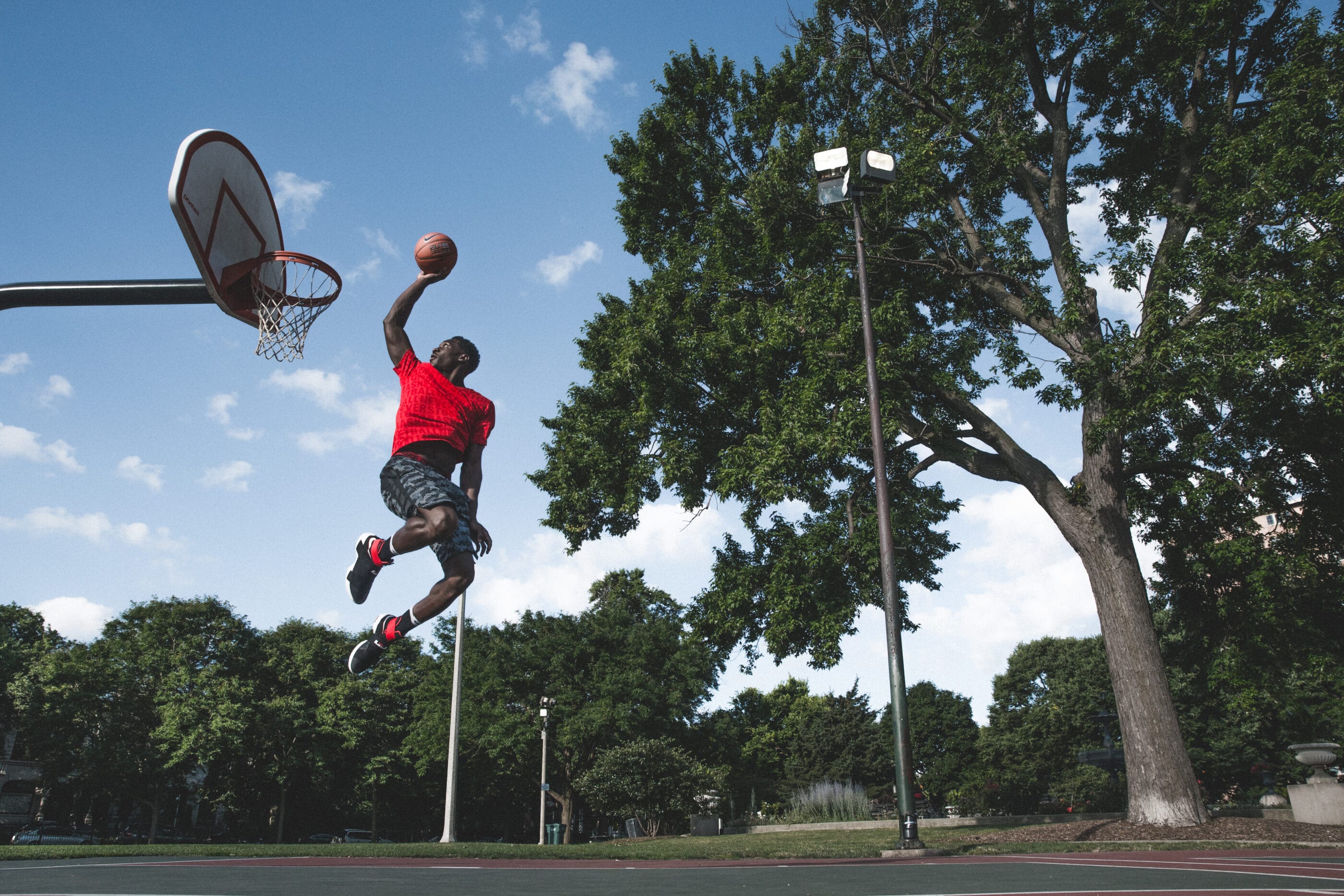Interview 085 • Nov 26th 2023
- Interview and Portraits of Nolis Anderson by Asa Featherstone, IV
About Nolis Anderson
Nolis Anderson is an artist, born in Chicago, Illinois with a strong love for both science and art. After completing his Doctor of Pharmacy program in 2012 and two years of working in the field of medicine, he took an indefinite hiatus to focus on his career as a commercial portrait and lifestyle photographer.
Select publications include, Apple, Chicago Bulls, Complex, Variety, GQ Magazine, The New York Times and The Washington Post.
Links
Foreword
Building community is a priority for Nolis. Through portraiture, he seeks to document people in their spaces of comfort and celebrate the versatility in every person’s individual experience regardless of background or status.
Transitioning from a career in pharmacy, he now creates what he calls lifestyle portrait photographs, which may overlook the depth that lies beneath the surface, depending on who you ask. It was a treat to have our conversation in the South Facing Windows studio, his Co-owned studio that doubles as his working space and a hub supporting the creative community in Chicago. While he won’t photograph your wedding (as you’ll notice on all his social accounts), that doesn’t diminish the amount of care and intimacy shown in his portraiture that brings people together.
----
This interview has been edited for clarity and content.
Interview
If someone tries to find you on any of your social media accounts, the first thing they’ll notice in your bio is “I don’t shoot weddings.” What’s the deal with that? How many wedding requests do you still get after putting that in your bio?
None. Zero. It’s great. That was the best thing I ever did. Honestly, before I put those in my captions, I would get asked all the time. I have not gotten asked to shoot a wedding since. I’ll get some people to make a little joke about it, but I haven’t genuinely gotten anybody asked me for a wedding since. It’s saved me a lot of time and emails.
What made you want to stop doing weddings? Was that a big thing for you?
No, I did a few and it just wasn’t for me. It’s just like, some people have those passions. Some people really like to capture the romance, the intimacy, and the families together, and—I love those things—but it’s not necessarily something I want to shoot.
If I go to weddings, I’ll have my camera with me. I have no problems taking pictures at a wedding if I’m not actually responsible.
That was such a good idea to put that in your profile caption because it’s clearly working.
I know, right? It was honestly a joke at first. Then I saw it working and just left it. I even got a tattoo of it. It says I.D.S.W. (I Don’t Shoot Weddings), and it’s a hand missing the ring finger. I think that was my last tattoo.
Ha ha! That’s brilliant.
Yeah it’s great!
Photography as a profession is a life transition for you. You studied medicine before this, right?
Yep. So actually, I picked up my first camera in 2008, which is the same year I got into grad school for pharmacy. So, I got my doctorate in pharmacy, and I worked as a pharmacist for about two years. I was doing photography as a hobby at the time.
I’d have that Canon Rebel T with me at school taking random photos in class and stuff like that. I think during that time, I was shooting parties, shooting events, hanging out at my friend’s store, like that kind of thing.
But, you know, over the years, people saw me and knew me as the dude with the camera, but it was always on the side. At one point, I was transitioning in pharmacies and trying to work at another pharmacy company. And in between looking for new jobs, I kind of went a little bit hard on the photography thing and that was the deal. I got a couple opportunities, did a little networking, ended up being introduced to my homie David Seale who was at Nike Chicago at the time and did some work with them. Shout out to my boy Trash for the intro, by the way.
Oh cool!
Ha ha! It wasn’t anything cool, at first, It took a while before I starting shooting bigger projects. I started off in the suburbs shooting cross-country high schoolers. Like, it wasn’t sweet, but you know, I didn’t have much to do. So I was pretty flexible and I was able to be pretty consistent So I did stuff with them for maybe the first like four years of my freelance career, which was nice to have just because it wasn’t like a nine to five, but it was still consistent and fun. I met a lot of great people that I still keep in touch with to this day.
Over the years, smaller gigs turned into bigger ones over the years, and I ended up getting chances to shoot the marathon and Nike Chicago’s like Summer campaign one year which was super dope. Things started flowing with my photography and just kept down that path. I still have my pharmacy license. Funny enough, I just went to get my diploma earlier this year. Ha ha! I still like to keep my pharmacy license active, but I don’t think I’ll ever use it. But, I really believed I could live off of my photography and went all in. I told myself that I’m just going to keep doing it until I can’t, and then when it runs out, I’ll just go back to pharmacy. But you know, that was back in 2014.
So, it wasn’t like you didn’t like the pharmaceutical industry. You just…
No, I did like pharmacy. I’ve always been like a science kid at heart. I think I just liked photography more and the freedoms that came with it.
Sure, when you work freelance—at least for me— you technically never get any time off, but in the same breath, I feel like you have more opportunities to create a stronger work-life balance. Now I can exercise more, go on trips or, and hang out with my family. There’s a lot more I can do now that I didn’t have time for when I was in pharmacy. I was working 5 to 6 days a week, up to 14-hour days depending on how busy things were. Like, I was losing my hair from the stress. I don’t think it was healthy for me. And I also couldn’t do photography because I didn’t have time. There was almost a full year where I didn’t take any photos. I couldn’t do both, and with pharmacy, you need to be fully invested.
A lot of people think pharmacies are just the people behind the counter passing out drugs. No, man, it’s a science. If you move a decimal point in one space, you can seriously harm somebody. So, it was a very nerve-wracking career with very little gratitude. You’re working with people who are sick and people who sometimes don’t have the money to pay for the medicine they need which meant they weren’t in a good mood most of the time, understandably. So, I had two things I was passionate about and took the one that was better for me and my mental health at the time.
Man, that sounds stressful. Is there anything that you feel like you brought from your science-based, pharmaceutical background into your creative work?
Yeah, I think just my discipline. I think you have to be very disciplined in order to get through pharmacy school in general. And then I also learned how to manage a team which is important. Especially now if I’m on set with assistants and digitechs, I gotta make sure everything’s running smoothly. I gotta make sure the client’s happy. I gotta make sure the talent’s happy.
Also just knowing how to talk to people. I’m not a big talker. I know it seems like I’m lying right now, ha ha! After this, I’m gonna go home and probably not talk to anybody except my girl for like two days. But, you know, I had to be social with people to keep those networks. And I think that’s how those people reference you as well when they go into other meetings and you’re not even there. So, I’m super grateful for pharmacy. I’ve got no regrets.
Yeah, I agree. As a fan of your work, I’d also say that your presentation is clean, meaning technically sound. My instincts immediately drew a link to your background in science. Maybe I’m reaching. Ha ha!
I get that a lot too. I don’t even know, honestly. I just do what I enjoy. I’m a very simple person at my core, and I think that might showcase in my style of photography. I wouldn’t say I’m minimal by any means, just simple. It’s so funny because I try not to be super clean with my photography work, which is hilarious, but it always ends up coming out like that. I guess it’s just how my brain works.
Don’t get me wrong, I know how I like my lights to be set up, but I’m definitely not super technical in terms of counting my stops and watching the histogram after every shot. I don’t even know how to use a histogram very well. I probably should though. Ha ha! I know the basics, and that’s where you would think the pharmacy and photography backgrounds intersect, but it’s more visuals and feeling for me.
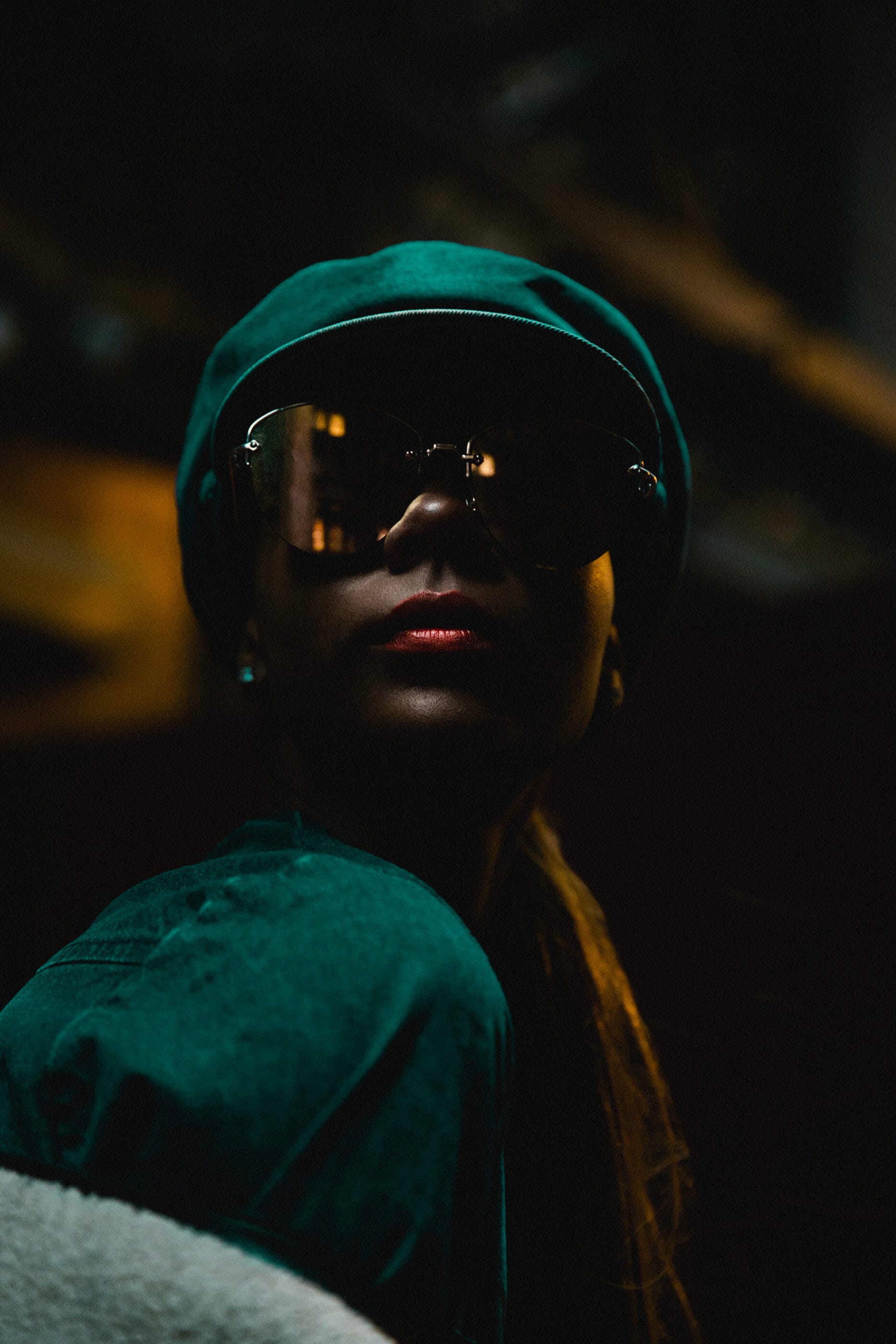
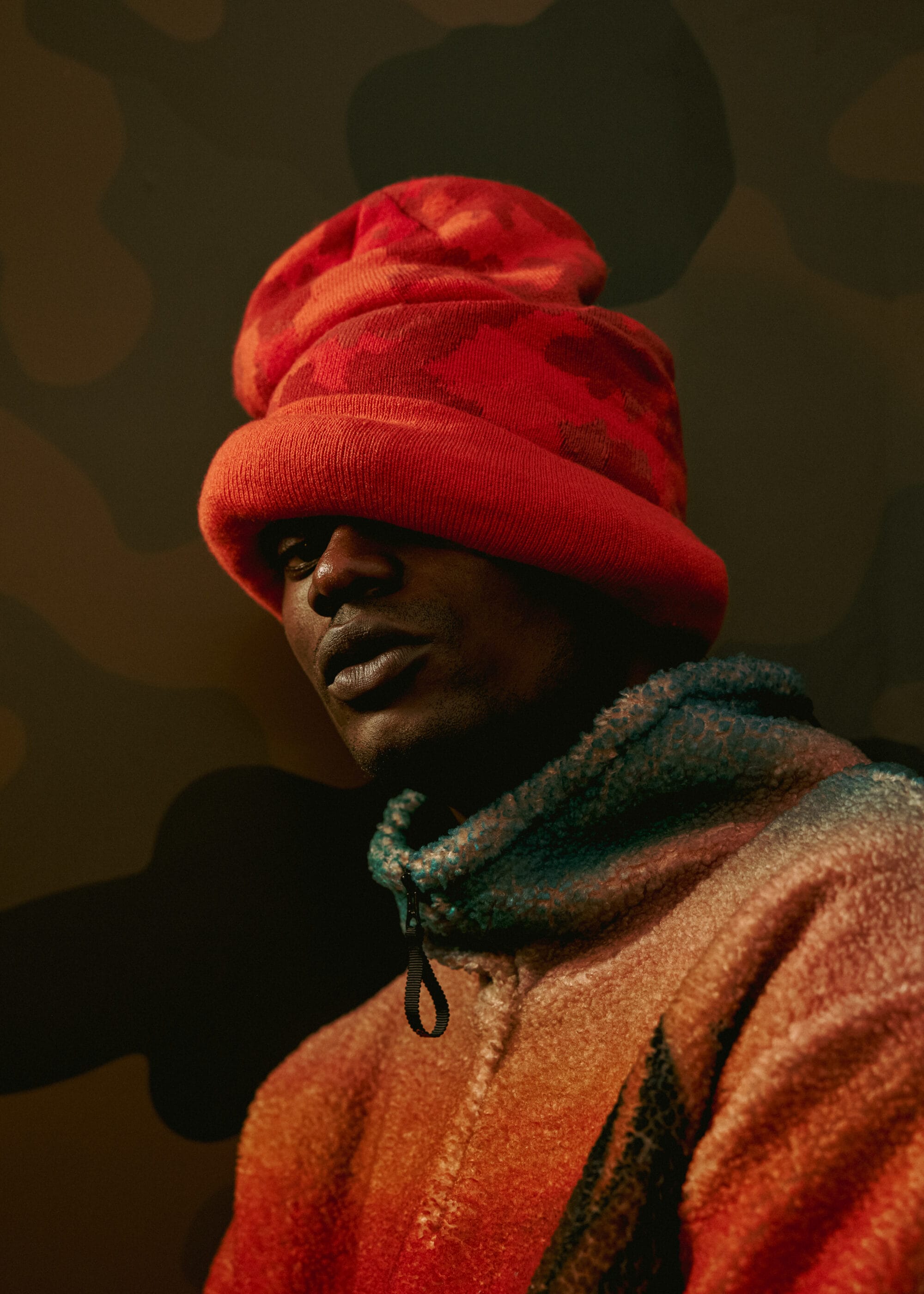
I love that. By the way this studio space is nice. Do you have the whole place to yourself?
Thank you. It’s shared between me and two other photographers. Michael Salisbury and Alina Tsvor. They’re two other Chicago-based photographers. And yeah, we opened this space up about four years ago. It’s called South Facing Windows. For obvious reasons. (the windows are facing South)
It’s catchy.
Yeah, we’ve been using it to do our own personal work as well as rent it out. And then we also run a community residency. So we’ll have local photographers from here in the city, and we’ll just give them free reign and free time here in the studio to work on a particular project. And then we try to showcase it and put it on our Instagram and socials too.
That’s dope. How do y’all take in submissions?
At this point, people just start emailing us. When we first opened up in 2019, it was pretty slow. But it was also during the time when all the protests were going on. There wasn’t a lot of freelance work going on at that moment. And specifically for Black artists at that.
So, we had just opened and we were making zero money, but we wanted to start this initiative where we gave free studio hours to Black artists for the whole summer so that people could just get away from the protest and the exhaustion of social media. So we did that for the whole summer, and it was insane.
How so?
I think we had like 40 people over the summer, and over 100 hours of studio time. We were here almost every day. And we wanted to keep doing it, but there was no way we could keep up with our own personal schedules and then be here all the time.
So, we simplified it dramatically and turned it into the residency program. Now we have like one or two people a month come in.
Sounds way more sustainable for you.
Most definitely. Cause you know, we want to be able to keep the space. We’re not necessarily in it to profit or make hella money out of it. We just wanted a space that we can work out of that paid for itself, and we wanted to be able to help out people who need it in certain situations. So far, so good.
Do you find that sharing resources is something that you see a lot of in the community in Chicago?
100%. I know back when I was younger, Chicago used to have a really bad rap. They used to call us Haterville.
Ha ha! Oh, for real?
If I remember correctly, yeah. There wasn’t a lot of love back in the day when I was younger. I mean, obviously, people had their cliques and circles, but people really held on to their own and—from the outside looking in— I think there was a lot more gatekeeping.
I can only speak specifically to the photography community, but nowadays, we’re pretty connected. Like we all sort of know each other and we’re all pretty helpful and do what we can to make sure everybody else has what they need. Cause we all know there’s enough business out here for everybody.
Like, I get emails from clients and if I can’t do it, I have a list of like homies here in Chicago that I can refer. I’ll never just tell a client “Oh no, I can’t do it.” There have even been other scenarios where I probably could do the job, but I knew there was somebody better fit for it. Like, one time I got hit up to do a lingerie campaign or something that had nothing to do with me. There’s no reason I shouldn’t pass that project to someone who could do a better job.
And I get that same love sent back to me. So, Chicago has been pretty good at staying together and helping each other.
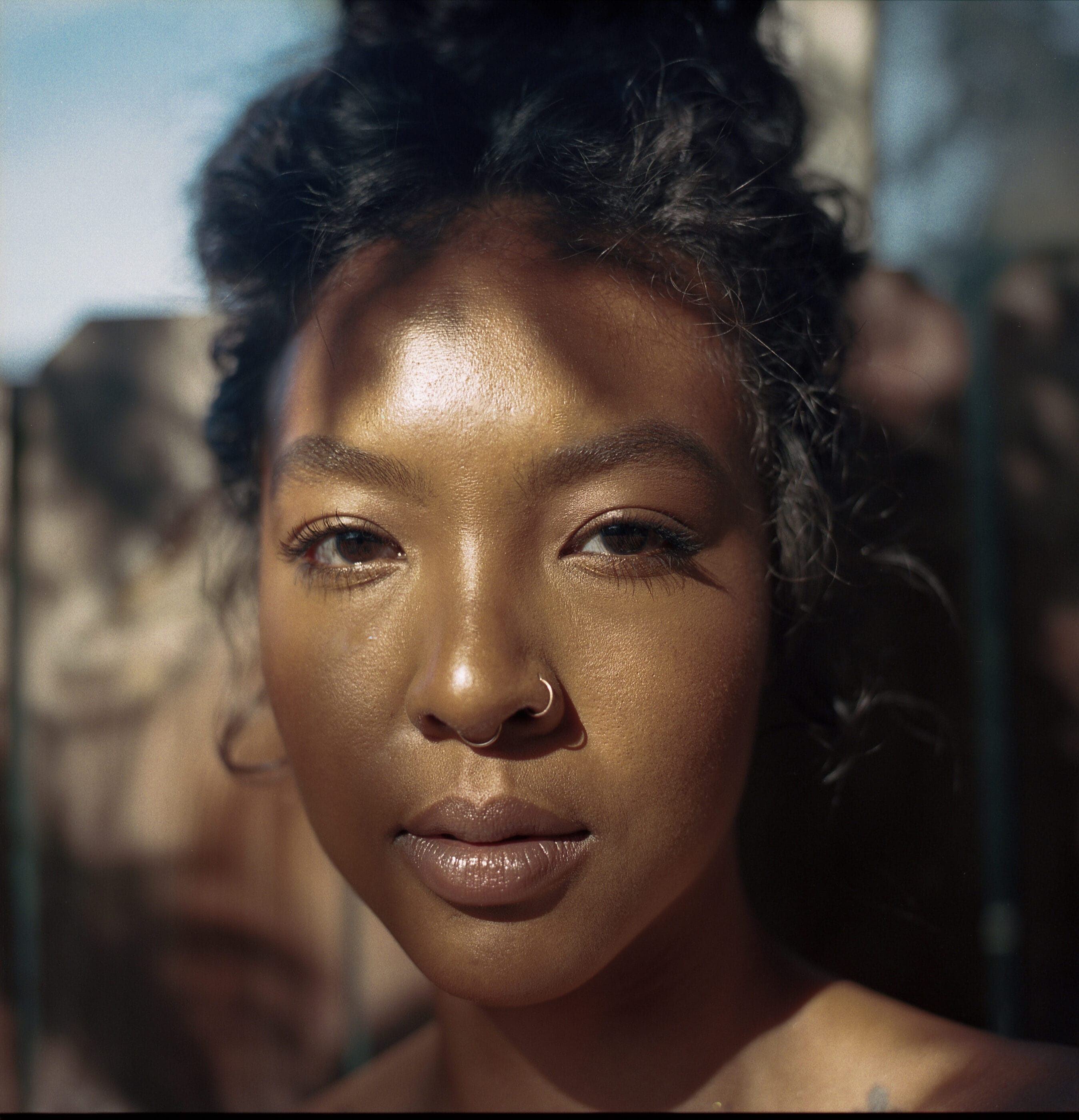
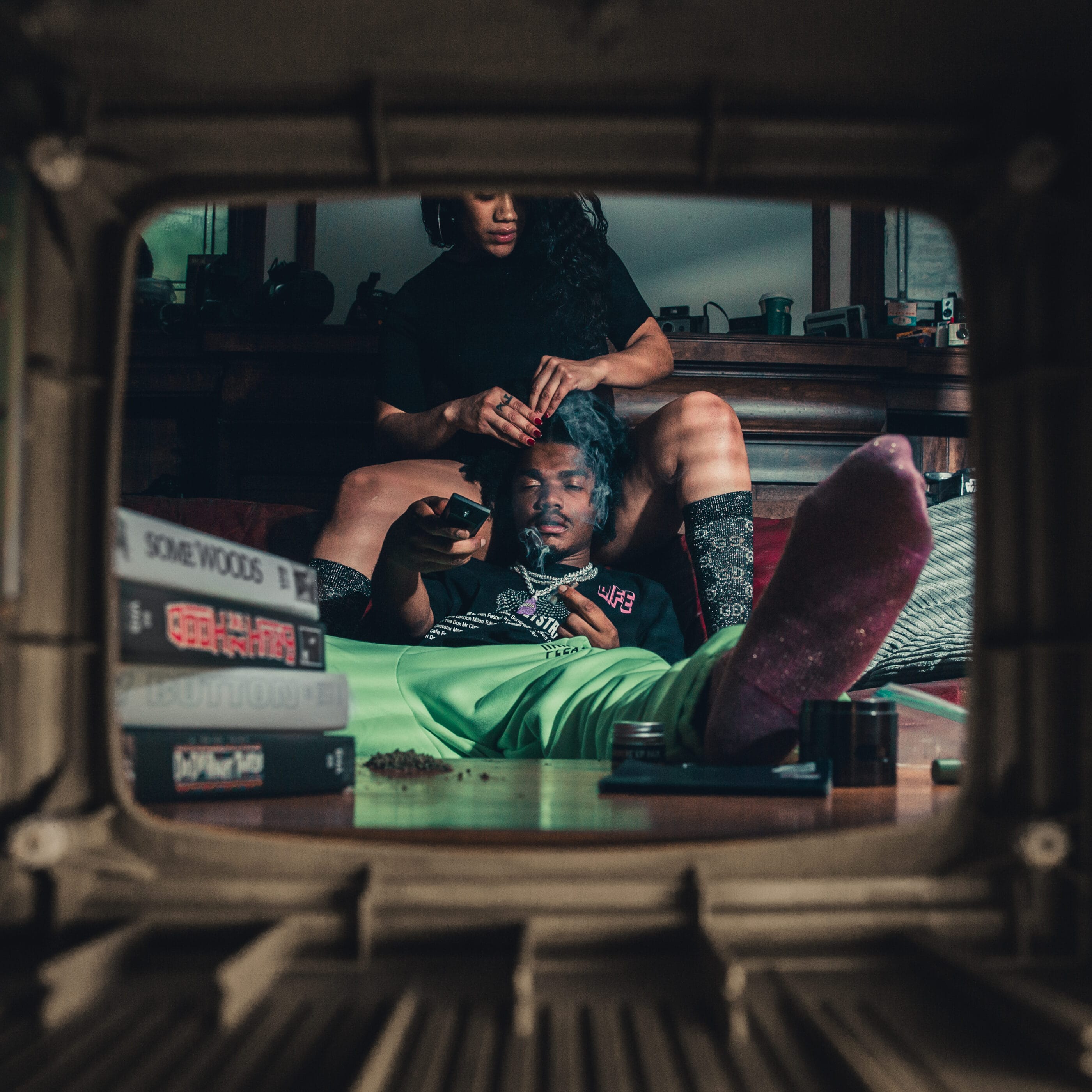
What impacted that shift? Was it social media?
I don’t know, man. I do think social media helps build a network and bring people together. I think it gave people the understanding that we’re all in the same boat. Even this year was pretty slow this year and after a while, I think everybody on the internet kind of realized it was pretty slow for everybody.
That sort of connection is how social media was supposed to be in the beginning. Ha ha!
Man, I wish the internet could just be networking and memes, ha ha! I wish we could get rid of all the other stuff and just keep it simple and positive. But, you know, everything comes with pros and cons.
Isn’t Discord kind of like that? Are you on there?
No, man. I don’t know. I can’t add another platform to keep track of. I think I’m finally at that age where I’m starting to not know how shit works. Like I know what it is, but I just don’t have time for it anymore.
Yeah it’s getting to be too much. Anything over three platforms is overwhelming.
Yep. My three are LinkedIn, Instagram and Twitter right now. I try to stay active on Threads when I can, but we still don’t know where that’s going. And, you know, I got some little secret joints too. I try to keep active on my VSCO and other things like that. And Tumblr, before I deleted it.
Oh Tumblr… What a time. Speaking of social, I did see that you recently tweeted a photo of your first camera that you owned. What was it again?
Rebel Xs.
That’s it! Do you remember what you were shooting on that?
Nothing. Ha ha ha! I don’t think I ever shot anything professional on it. I think I got it in 2008 at a pawn shop in Wicker Park, and at that time I was more into streetwear, fashion and stuff like that. I just got it for fun.
I hung out at my people’s clothing store, called Leaders 1354–shoutout Cory, Mike and Vick— in Wicker Park back in the day, just taking pictures of whatever was going on, and if there were events and at the space, I would set up photo booths and things like that. So that’s initially how it started, but I don’t think I actually shot anything legitimate with that camera. I had no idea what I was doing — I don’t even think I kept the negatives.
But to start out on film, when there were a decent number of digital options at the time, must’ve felt daunting.
It was fun. It was all I could afford at the time. Film wasn’t crazy expensive yet. I got the camera for like $40 or $50. Film was cheap. I would just go to Walgreens and get a couple rolls for $3-4, and then I got it developed at Walgreens within 24 hours. At the time, I wasn’t doing anything super crazy or expensive. I was happy with my set up.
It wasn’t until I started wanting higher-quality photos that I transitioned over to a digital camera. I think it was a rebel T? Whichever one was before they started adding the numbers afterward.
Oh, the original?
Funny story. I was the clothing store I mentioned earlier, and I got in a fight with my friend, Vick. Actually, it was more of a squabble, but I think he ended up breaking the little digital camera I had at the time. It wasn’t anything special, but after he broke it, he actually helped me fund my first digital camera, and that’s kind of how I got started shooting digital officially.
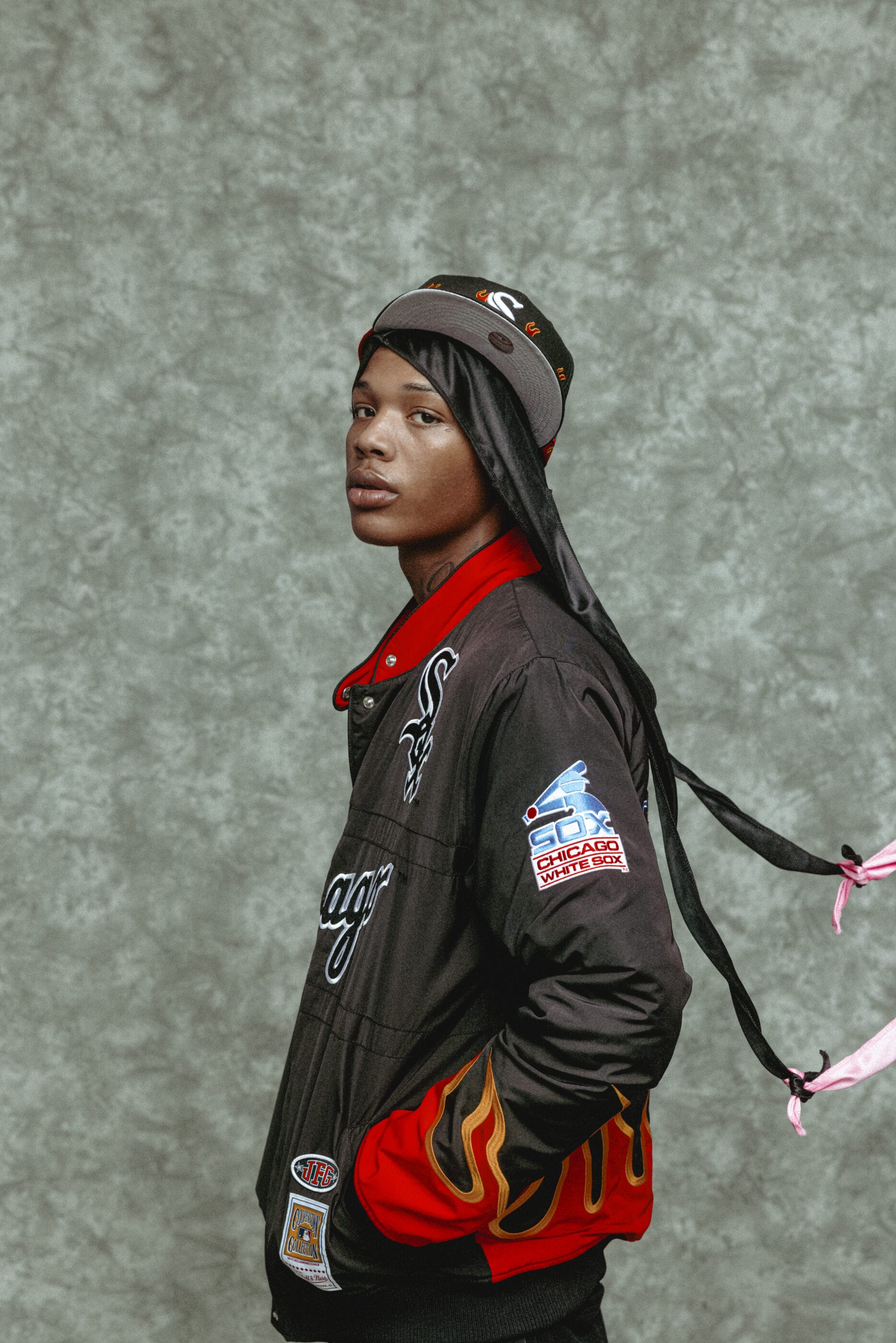
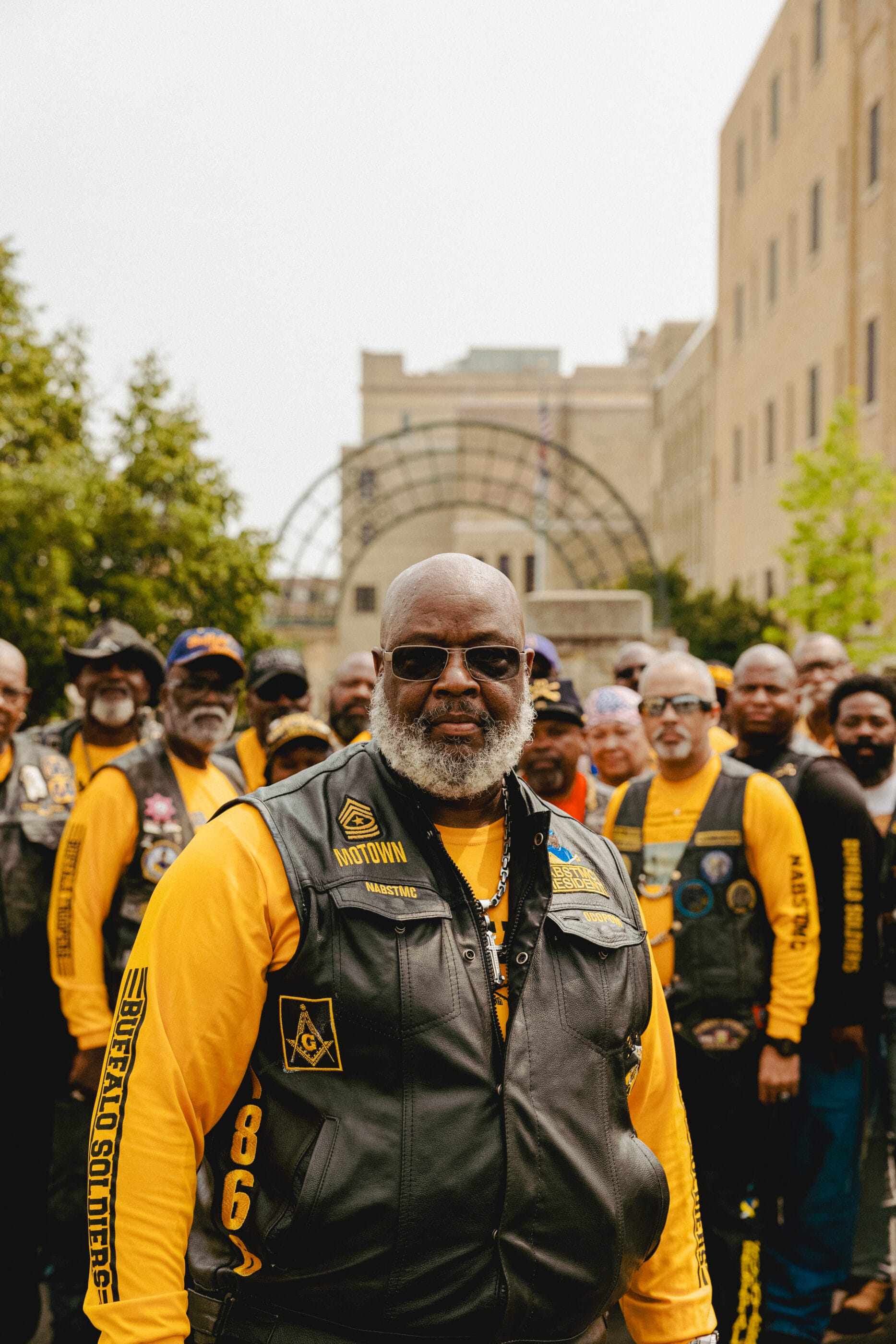
Wow, that’s so wild. So you’ve been in Chicago your whole life? What’s the best thing about it?
I like the versatility of it. A lot of people would always ask me when I’m moving to New York or LA, but I like Chicago. I think it can do both. You can go and be busy and hustle, and then you can also get away to your quiet space if you need to. Also, being from here my whole life, I’m biased. I have all my connections here. My family’s here, everybody that I grew up with is here.
How does Chicago treat you as an artist?
Great. I’ve been shooting professionally for a little over 9 years now and Chicago’s shown nothing but love. The community’s helped me grow as a photographer through word of mouth. I’ve got to shout out all of the creative directors, producers, and editors who put me on their mood boards or reference my work when they don’t have to do that.
That’s dope. And this is independently?
I have a rep now who helps me handle the financial conversations around larger shoots to make sure I’m getting compensated properly.
Were there any jobs where you feel like you left money on the table?
Yeah. So many. I can’t think of one specifically, but there’ve definitely been moments where I’ve been like, “Damn, I should charge more.” That still happens to me. One of the things I do nowadays, whether I’m sending estimates myself or through my rep, is just start high. The only thing they can do is say no or negotiate down. But I understand that I’m in a position to do that now, that’s not necessarily something I would recommend for people starting out. Get what you can get, get your portfolio up, and build your networks first.
Now don’t get me wrong, if there’s something that intrigues me, or the project involves someone I really want to collaborate with, I’m definitely still down. It’s just more rare because I don’t have as much time anymore.
Just recently, I went out to Milwaukee to shoot the president of the Buffalo Soldiers Motorcycle Club for Wall Street Journal. It’s like the largest Black motorcycle club in the country. If we’re honest, photojournalism projects don’t pay an insane amount of money, but I thought the story and the subject was dope. And it was like cool to meet those people and get their portraits. Sometimes, not always thinking about money is worth it.
Yeah I saw that work, it was beautiful. What was it like working on that assignment? You drove up to Milwaukee, but what’d you do once you got there?
Nothing, man. Ha ha. Photojournalism projects are so raw. You’re on your own, for the most part. The editors are like, “Go shoot that, and make it happen.”
For this assignment, I think Harley Davidson was having their 50th anniversary, so a lot of motorcycle clubs were up in Milwaukee at the time, because that’s where they’re headquartered. I had a contact and met with some of the clubs and just watched them do their thing until I was ready to photograph the president. We went to an empty parking lot across the street that we had to sneak into. It was hilarious. Took me back to when I was young.
We took some portraits with him on his motorcycle, and then we got some group shots of the whole crew which was super dope. It was pretty simple, but I had a lot of fun.
It’s definitely a different process though. There are no assistants, no PAs, which can be nice because you don’t have anybody over your shoulder either. You just have the freedom to do whatever you want.
Since this was different than your normal process, what feels more typical to you? Are you into larger productions? I know you photograph celebrities from time to time. Do you consider yourself a celebrity photographer?
Absolutely not. No way. I mean, what’s a celebrity nowadays? Are influencers also celebrities nowadays?
Okay fair. What if we said high-profile individuals?
I don’t think I’m there yet. I have friends who I do consider to be in that realm and, those same people would probably say I’m talking down on myself, but I don’t think I’m at that level just yet. I’ll get there eventually.
So that’s the direction you want your work to be headed?
I want to do the same thing I’m doing now, just at a higher level. You know, a wider range of clients and things like that. I’ve always said that I want to get to a point where I can do four or five projects a year and then everything else can be personal work or being at the studio helping other people out. I’m not saying that I want to make a million dollars in four or five assignments. I just want to make enough assignments to be comfortable and, make sure my people are good.
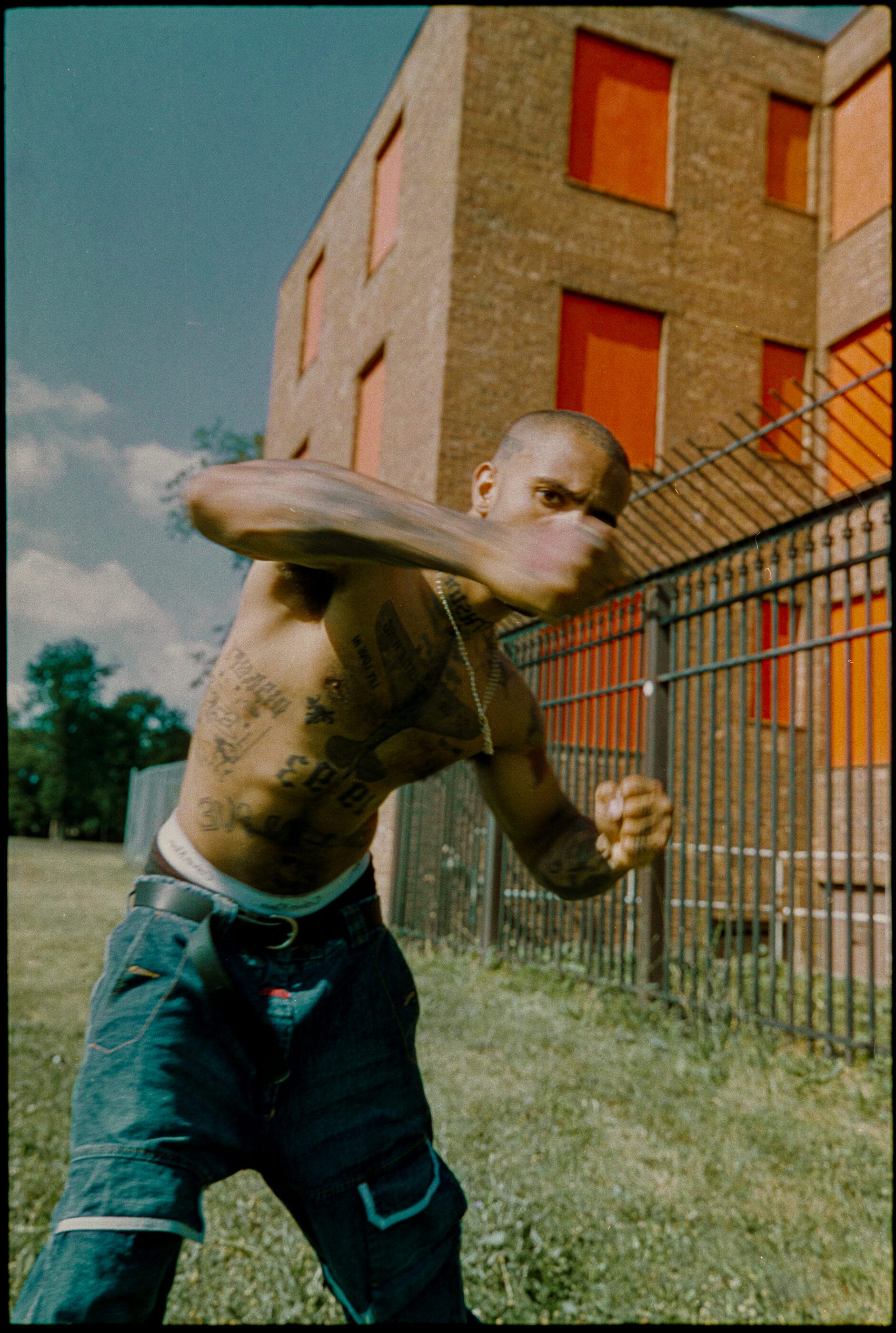
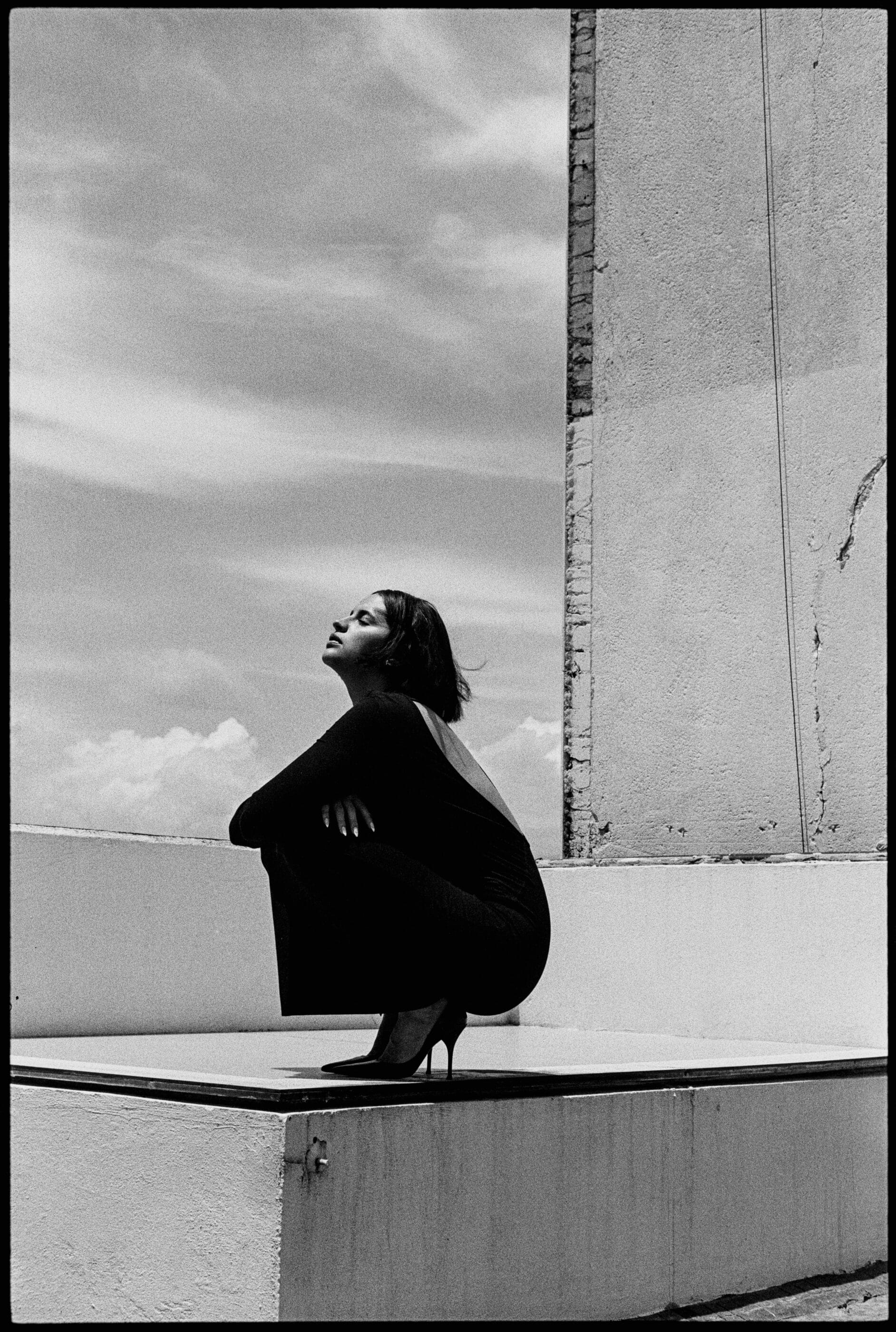
I respect that. How do you think you’ll get to that point?
I think it’s about continuing to evolve my work. That comes from not being so one-dimensional. I think it’s important to have a direction, but you also want to showcase your versatility.
At this moment, for me, that means doing more work on set. I’ve been doing a lot more still photography, which isn’t something that I particularly showcase, but I just like being on set just because of the environment. I get to see how larger-scale productions are run versus something that I would do here in the studio. I think just being open to continuously learning is helping tremendously. Now, when I come back to my own shoots, I feel like I have more of a director’s mindset: I’m getting better at planning and creating scenarios where I know the photo that I’m going to make and I’m not just guessing and hoping that it happens.
So has being on set gotten you interested in motion at all?
Not from a holding the camera standpoint, but I could see myself directing. I’ve never been huge into shooting video. I tried it one time and it wasn’t really for me particularly.
Do you remember what you worked on?
It was so long ago. I think it was a video of musicians in their studio. Don’t get me wrong, the whole process of being there was cool, but I didn’t enjoy the physical process holding this camera and then going home and editing video. The difference between editing photos and video is insane. I don’t think I have the storage space to work on video.
Ha ha! Plus those camera rigs are getting ridiculous.
Ridiculous! I see these dudes with their easy rigs sweating and running around on set all day. I respect it, but t’s not for me.
So, when did you realize your photos were good?
That’s a good question. Maybe a couple of years into it, around 2014, or 2015. I think that’s when I transitioned and started doing more portraiture. Before I was shooting a lot of sports, events, and parties, but I wanted a more stylized focus for my work.
Once I started taking portraits, I could see my style taking shape. I started to understand the lines, compositions, and my understanding of color theory was starting to get better. I remember the first time I photographed this girl who had bright orange hair sitting in some birds of paradise. I remember this lush green foliage contrasted with little bits of the birds of paradise and the orange in her hair. I think it was the first time I hit that orange and olive situation, which is one of my favorite color combinations to use to this day.
And at the same time, I think photography on social media was blowing up a little bit more and I started to realize that this was something I could do for a living. I don’t think there was a specific shoot or anything like that. It was a combination of things working together and the realization was more gradual.
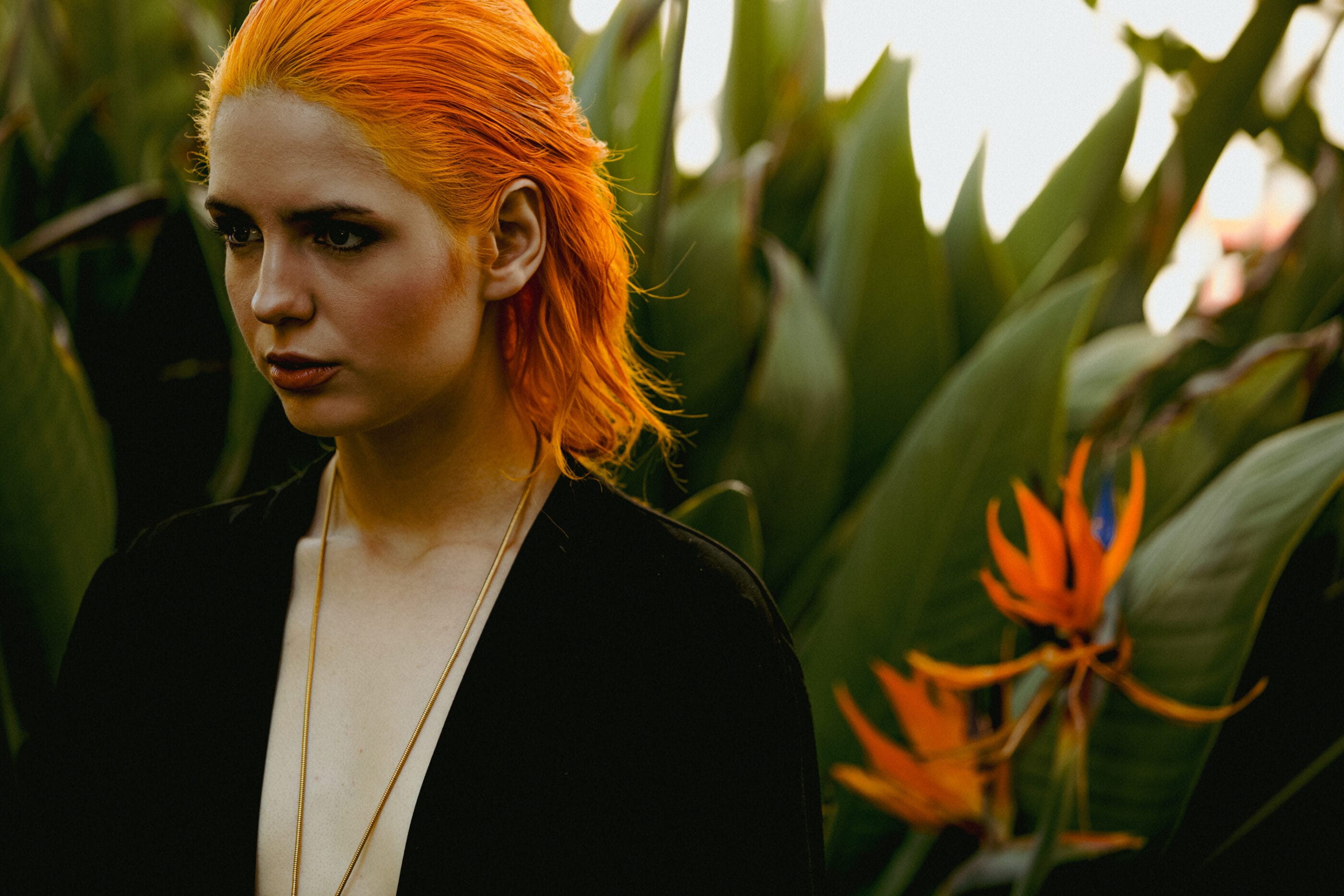
Was it something that you saw in your own work or was it the public response to the work that let you know you were good?
I think it was something more I saw in the work. Because you’re always going to get people, especially people close around you, hyping you up. I always appreciate it, but you can’t believe everything you hear when it comes to your friends and family.
I had a good friend and mentor in Luxembourg named Marc Laroche. I think I met him on Flickr or something like that, but he gave me a lot of guidance around portraiture, Photoshop, and things like that. So, I think that culmination of things coming together allowed me to level up drastically within a year. Going from shooting parties to doing artistic portraitures was a big jump, but that narrow focus helped.
That’s nice. So, naturally you knew you wanted your work to be portraiture?
Yeah, I think I’ve always liked portraits even before I started taking my own.
In general, and I think in my later years, I’ve been into environmental portraits. I love shooting people when they’re in their zone. That could be anywhere like their home, their studio, or places like that. It’s something that never gets old to me because everyone’s different. Everyone has their own interesting bits about themselves, so I feel like you can take portraits forever and they can always come out different and interesting. So, I’ve always been drawn to people.
On the flip side, it can be difficult because of how much coordination it takes. Sometimes you get the flakers, or you try to get makeup people to come in and have to work around their schedules. Bringing a team together to help you is a job in itself.
Totally. I have a lot of respect for portraiture for that reason alone. How’d you decide on portraiture in the first place over something else like, architecture or events?
I think I was always surrounded by naturally interesting people. Growing up in the street fashion and music scene of Chicago there was never a shortage of interesting people around to take images of, be it for personal or business purposes. Also, shooting portraits just never seemed to be a type of photography that I would tire of. You can take pictures of 100 different people on the same background and every image will be special due to the uniqueness of the individuals.
And, is depicting Black and Brown people something you prioritize, or is less intentional?
It’s not intentional. I think it’s just what comes naturally. It’s just a natural interest for me, but I think it changes in phases too. I don’t think it’s always like that, but over the last few years, it’s been something I’ve like gravitated towards.
I don’t want to call it trendy, but I feel like shooting Black and Brown has been a very popular theme throughout all aspects of media. Commercial work, advertising work…
You mean since 2020?
Yeah. I feel like everybody just wants to be a little woke. And I’m not even referring to Black photographers only photographing Black people. I’m talking about everybody. I just feel everybody has kind of taken that direction, and I just want to make sure I’m being true to myself, and I think I am. Naturally, I shoot more Black and Brown people because that’s who I’m around. At the end of the day, I just want to photograph as many people as I can. If you’re interesting, then I want to capture you.
I’ve heard you say that a few times – What makes someone interesting to you?
Don’t know. I think that’s what’s so nice about it. I feel like a lot of people think interesting in photography means beautiful or whatever the social standard of beauty is, but it’s never been like that. I’m just like, what’s something unique about you that makes you stand out? I don’t think there’s one answer to that because it depends on the person and can be anything. It could just be their eyes, a scar, maybe the gestures that their face makes. it just depends.
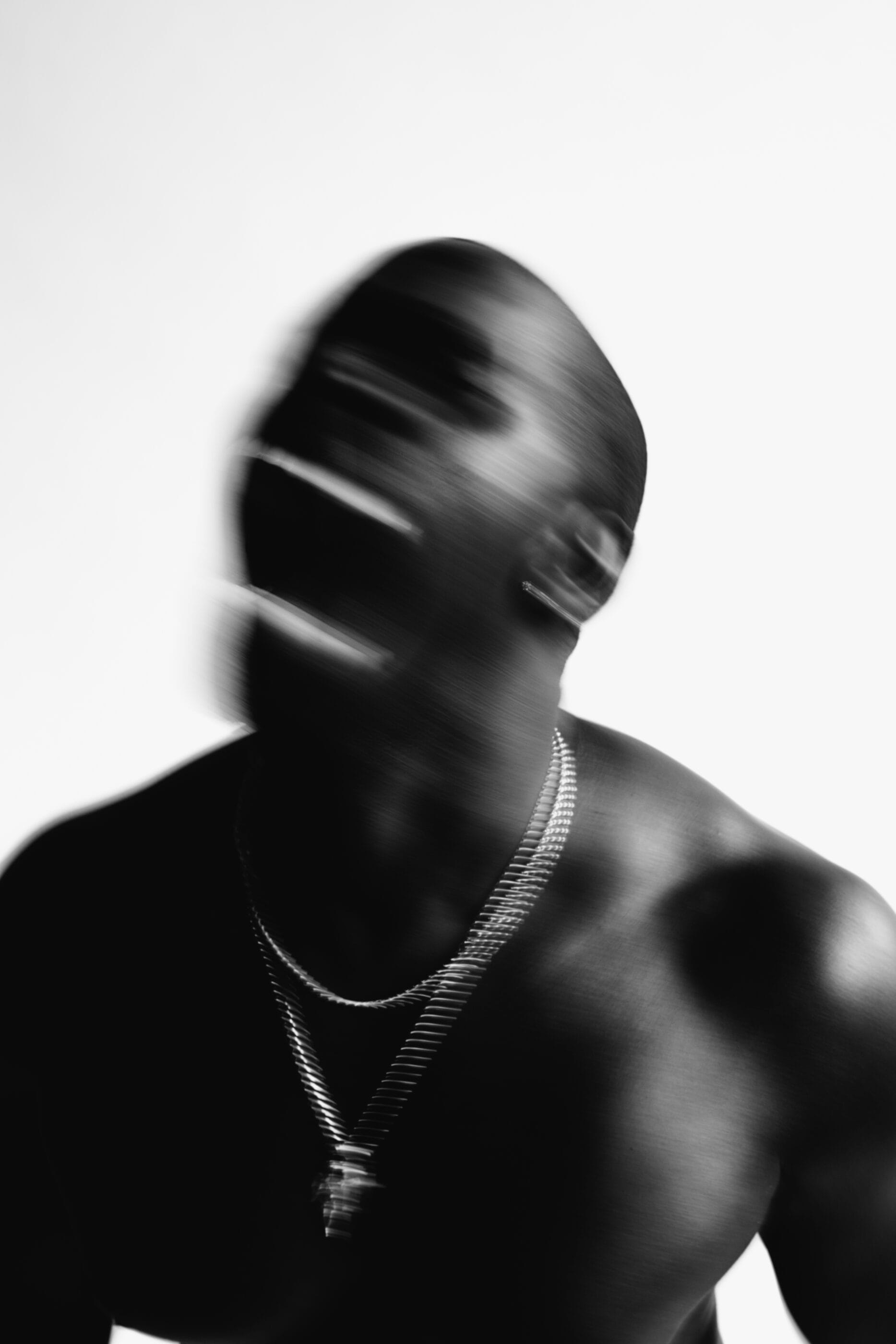
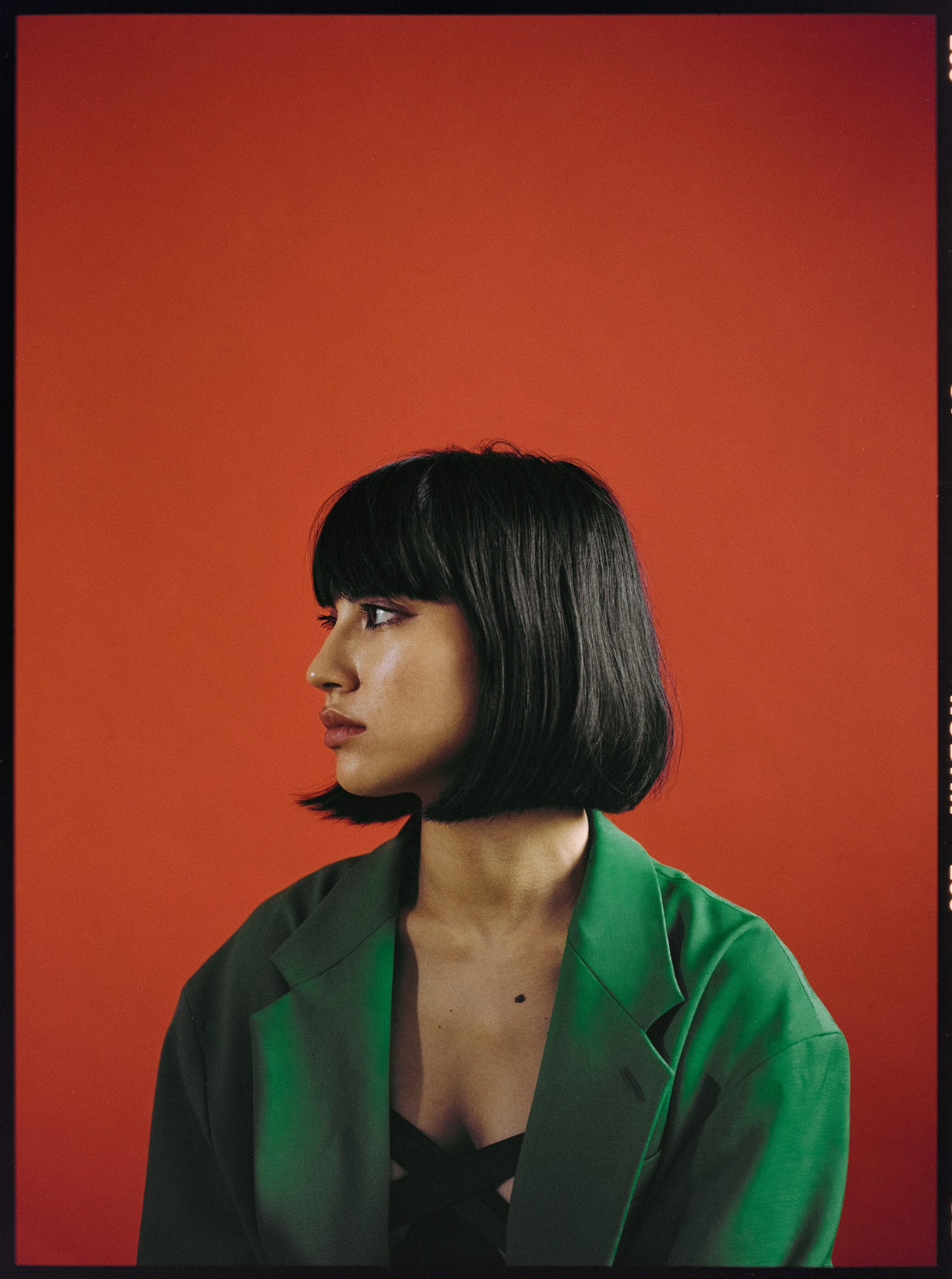
Culturally speaking, how have the last few years been to you as an artist post-2020?
I think 2021 was the year where a lot of artists were starting to get a lot more opportunities, myself included. I think a lot of social media and news outlets were starting their diversity branches and all of these different podcasts were popping up. If I’m not mistaken, a lot of them aren’t here anymore secretly. A lot of those branches got shut off in 2023. I feel like the appeal of it from the higher ups has faded.
It’s unfortunate because there are so many creative people out here who can do so much for these companies, and they closed some of these branches for no reason. Before all of that, during the height of COVID, I lost a ton of work because I couldn’t travel. At the same time, I got more opportunities in Chicago because nobody was flying anywhere. So, it gave me the opportunity network more with people in Chicago, which I think benefited me in the long run.
I don’t want to allow anybody to tell me like who I am and what I can or can’t do. I want to be hired as the photographer. I want to be able to shoot everything. Not only on the campaigns highlighting Black voices.
Mm hmm.
I would hope that’s what most People of Color would want for themselves. You wouldn’t want to be the best Black musician, you want to be the best musician! Of course, being Black is part of what makes you special, but you don’t want it to become something that limits you. You know what I’m saying?
I do. Is categorizing yourself as a photographer important to you? Like calling yourself a portrait photographer versus a fine artist…
I definitely don’t consider myself a fine artist. I just call myself a lifestyle portrait photographer, because it gives me opportunities to take on a lot more work. I think fine art is such a specific style of portraiture that’s something I’ve never been super focused on.
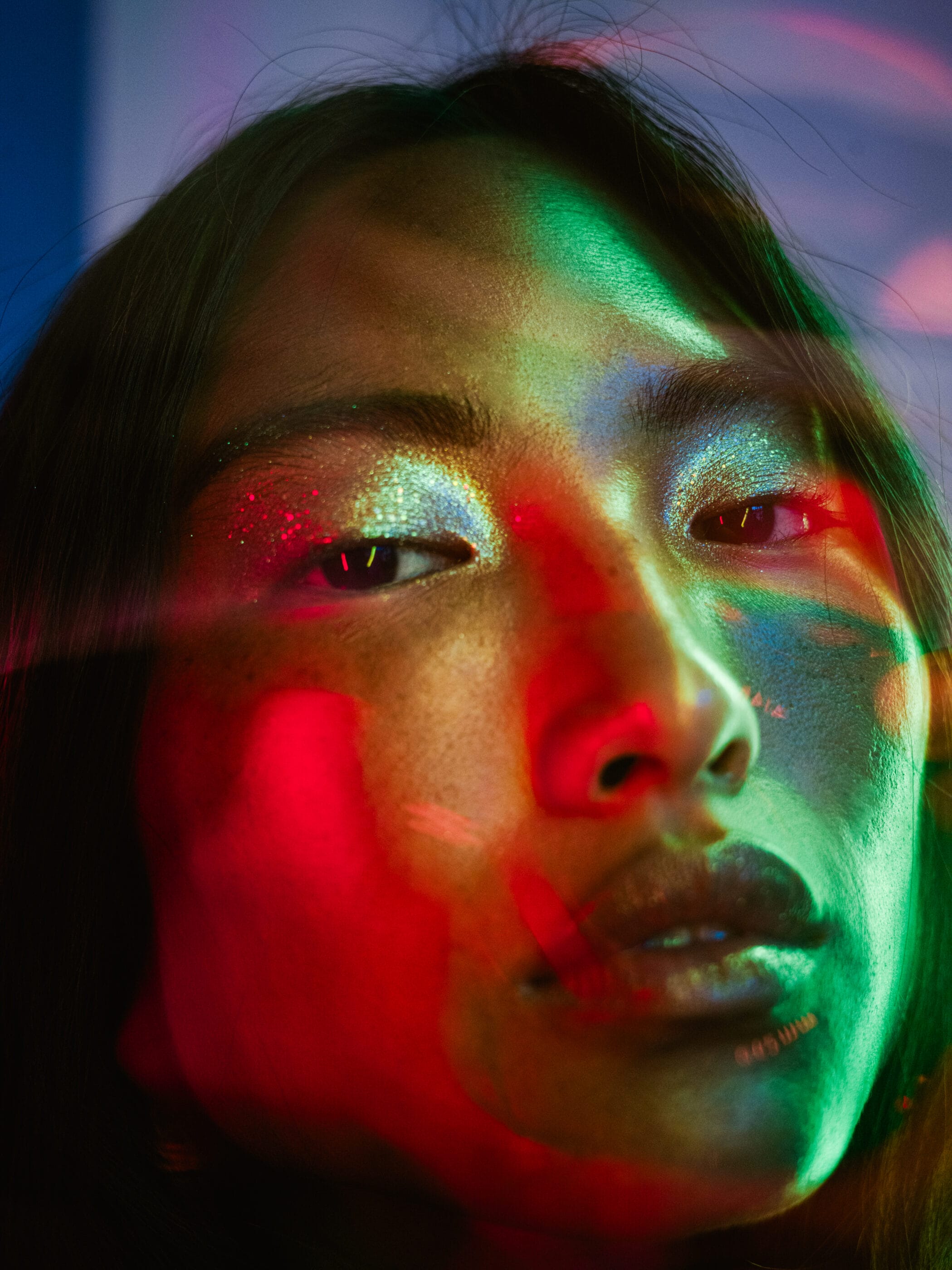
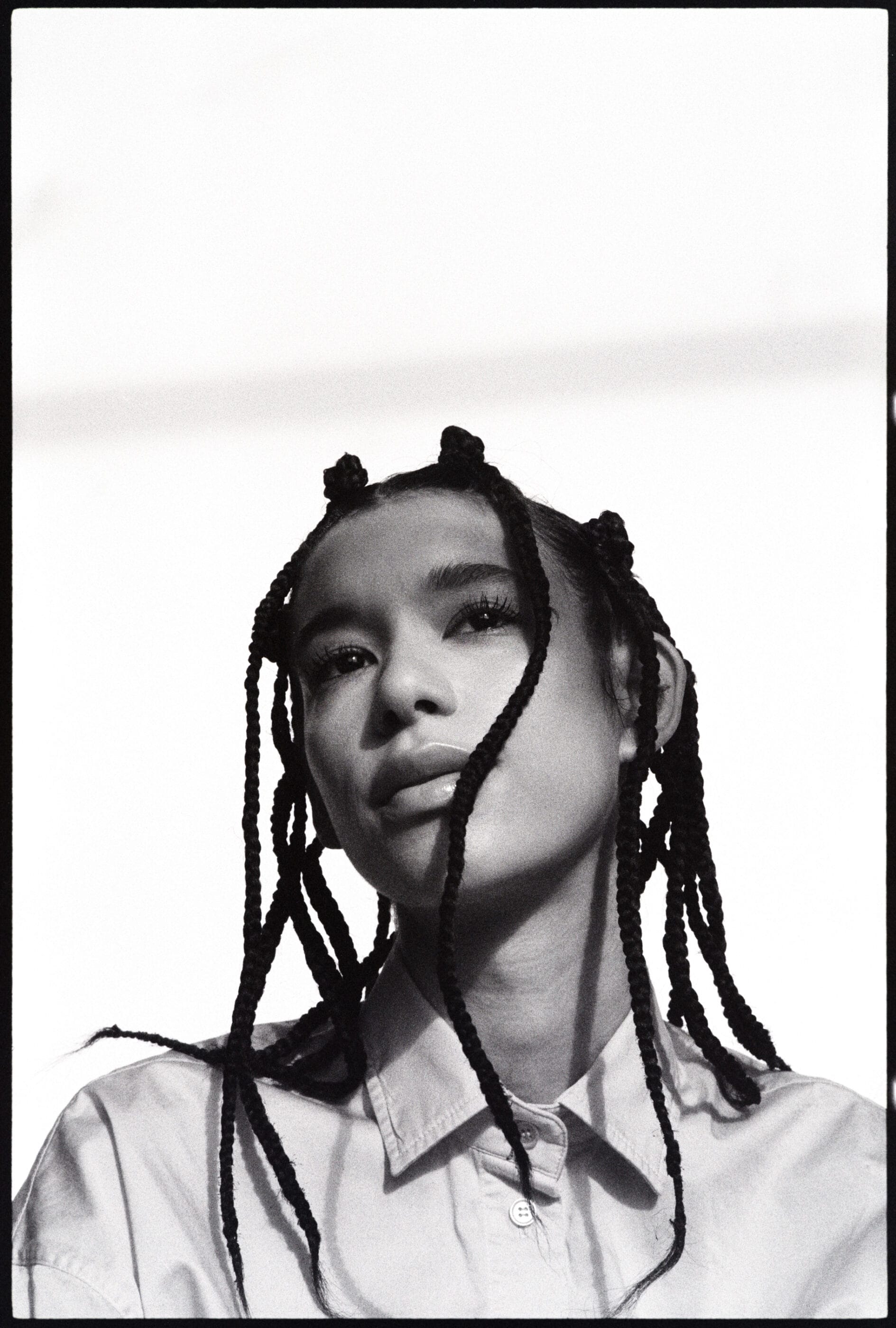
What do you think distinguishes fine art portraiture from your work?
Nolis: I think fine art portraits are essentially seen as a painting. Or having a painting as your inspiration behind the portrait. It’s more abstract as well. There’s something to it that adds a more thought-provoking idea of what the photo is beyond the person. Whereas my portraits are focused specifically on the people.
Okay, I see what you’re saying. So, you use photography as a service versus an expression?
I think it’s a mixture. Recently, it’s been more of a service. I do have my own personal projects on the side that would be more of an expression, but I think it’s a combination of both.
We’d love to see those. What do you want to express with your photographs? I know the service is what pays the bills, but why do continue to choose photography?
Hmm. I just want to show people in their truest form. Not necessarily people at the best, just people as they are and what they are trying to express. Photography has taken me all around the world from Ennis, Montana to Doha, Qatar. It’s allowed me to experience and see things I could have never imagined seeing as a kid from the southside of Chicago. I believe people are born to learn and interact. As long as photography continues to further my engagements in those two areas, I will do it until the day I can no longer.
That’s real. It’s amazing to think about the places a camera can take you.
Seriously. I’m so grateful.
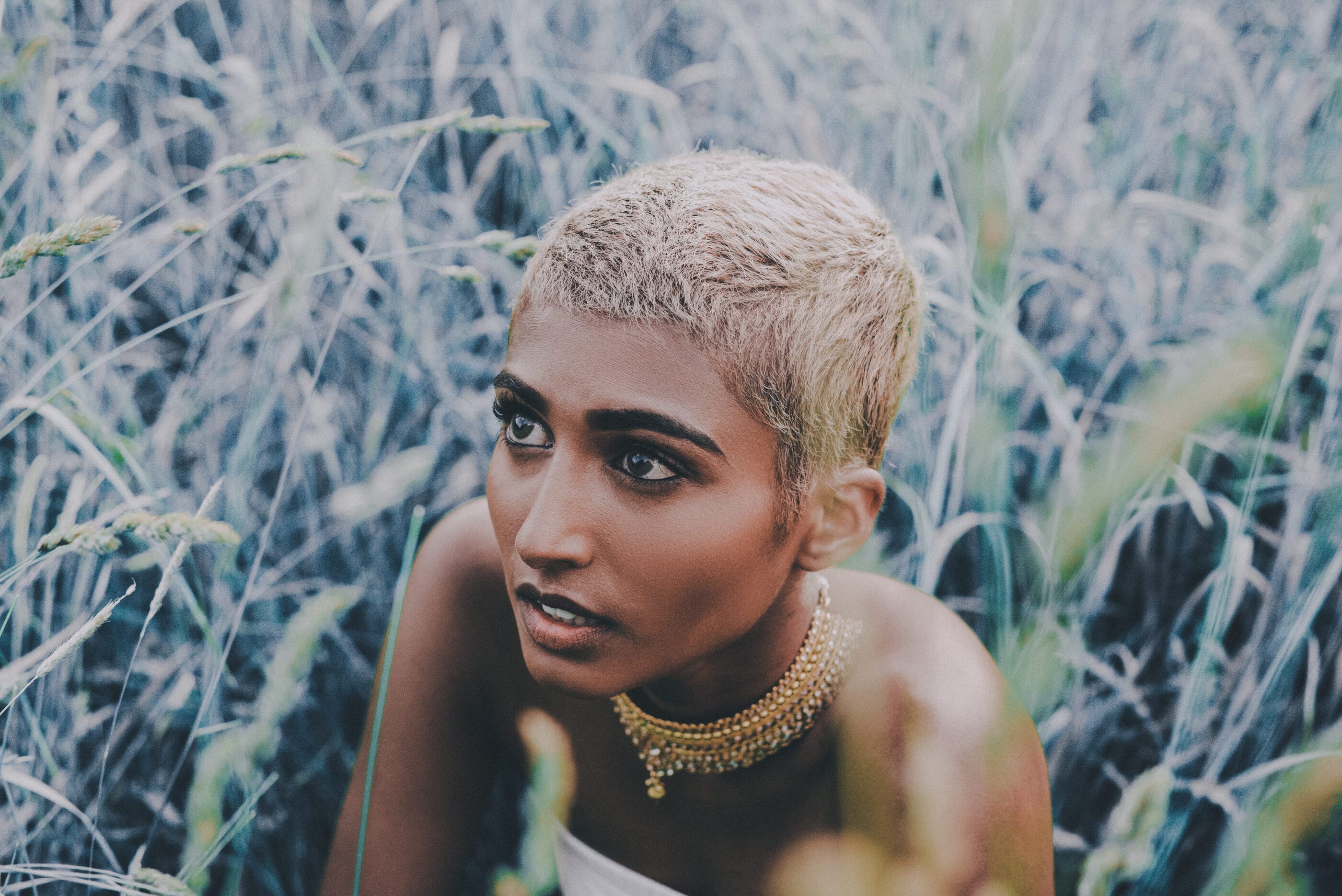
Something we like to ask all of our artists: When it comes to your work, do you prefer the process or the result?
Great question. I’m not sure if I could pick between one or the other. I enjoy both. I maybe would lean more toward the process. Being able to work through the creative processes to get to the final result is a great feeling. You feel accomplished that you were able to materialize your vision in real-time through trial and error mixed with your expertise and knowledge of what you’ve learned from prior experiences.
I love how you put that – that’s really thoughtful. I tend to enjoy the process so much that I forget to celebrate the end result. Ha ha! Thanks for that.
No problem.
By the way, the recent photographs you took of Nick Cave look great! Do you consider those a service or an expression?
Thank you. A little of both, but I think it leans closer to photography as a service.
Did you have a lot of time to work with him during your photo session? It seemed pretty intimate. What was that process like?
Yeah, not too much. I mean, first and foremost, that was the second time I’ve photographed him, so there was a little more comfort this time around. The first time was a few years back for Chicago Magazine.
Oh, gotcha.
I wouldn’t say he’s like my friend or anything, but I know Nick, I’ve seen him at events and in spaces a decent amount. I think for this shoot I had about an hour with him, which is more time than normal.
Oh, yeah. That’s a lot more than I imagined.
No kidding. A lot of times you’ve got 20 minutes to get what you need. So this time I had an hour to walk around the space and prepare before he walked in. It was a lot more chill than many of my other shoots with higher profile subjects.
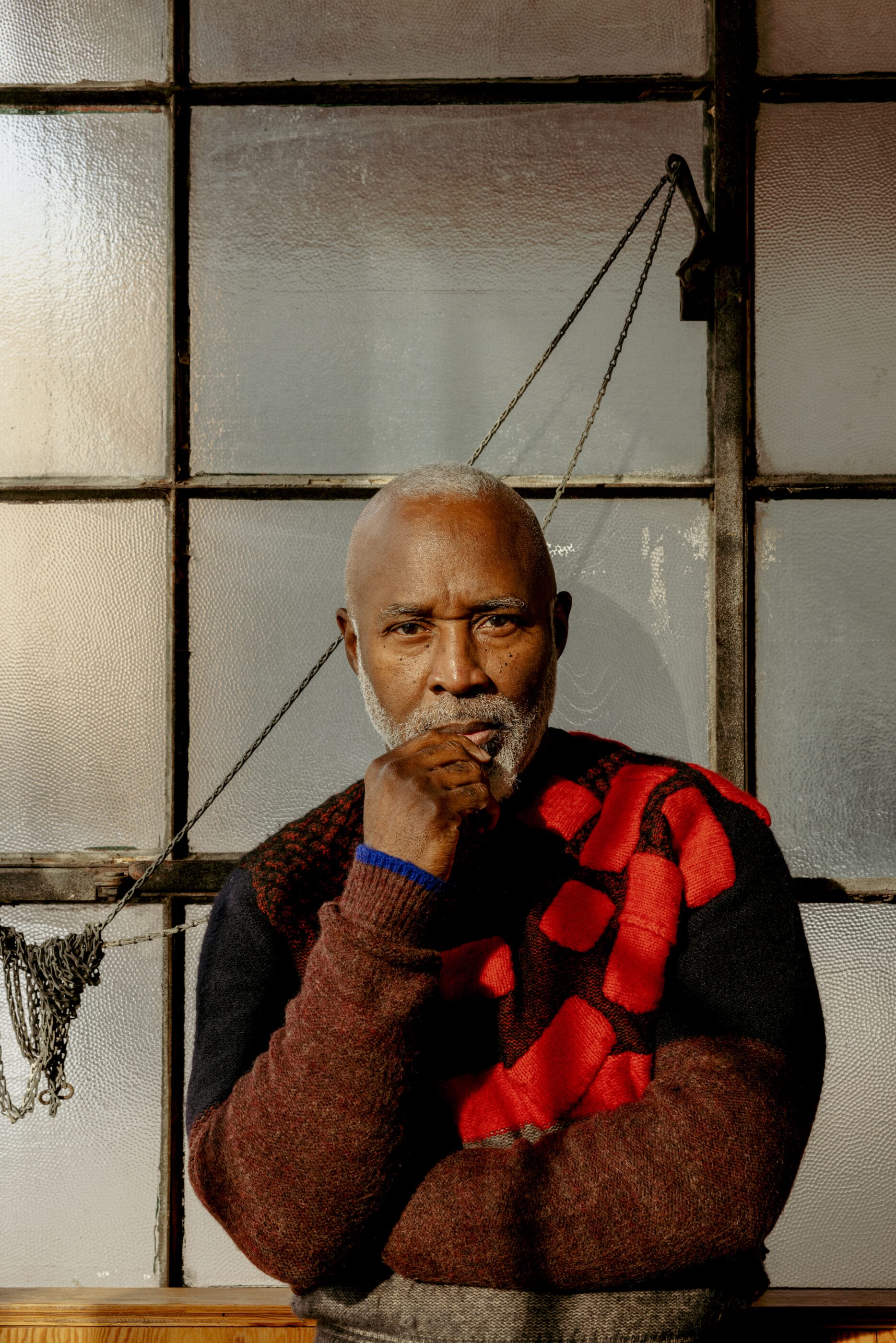
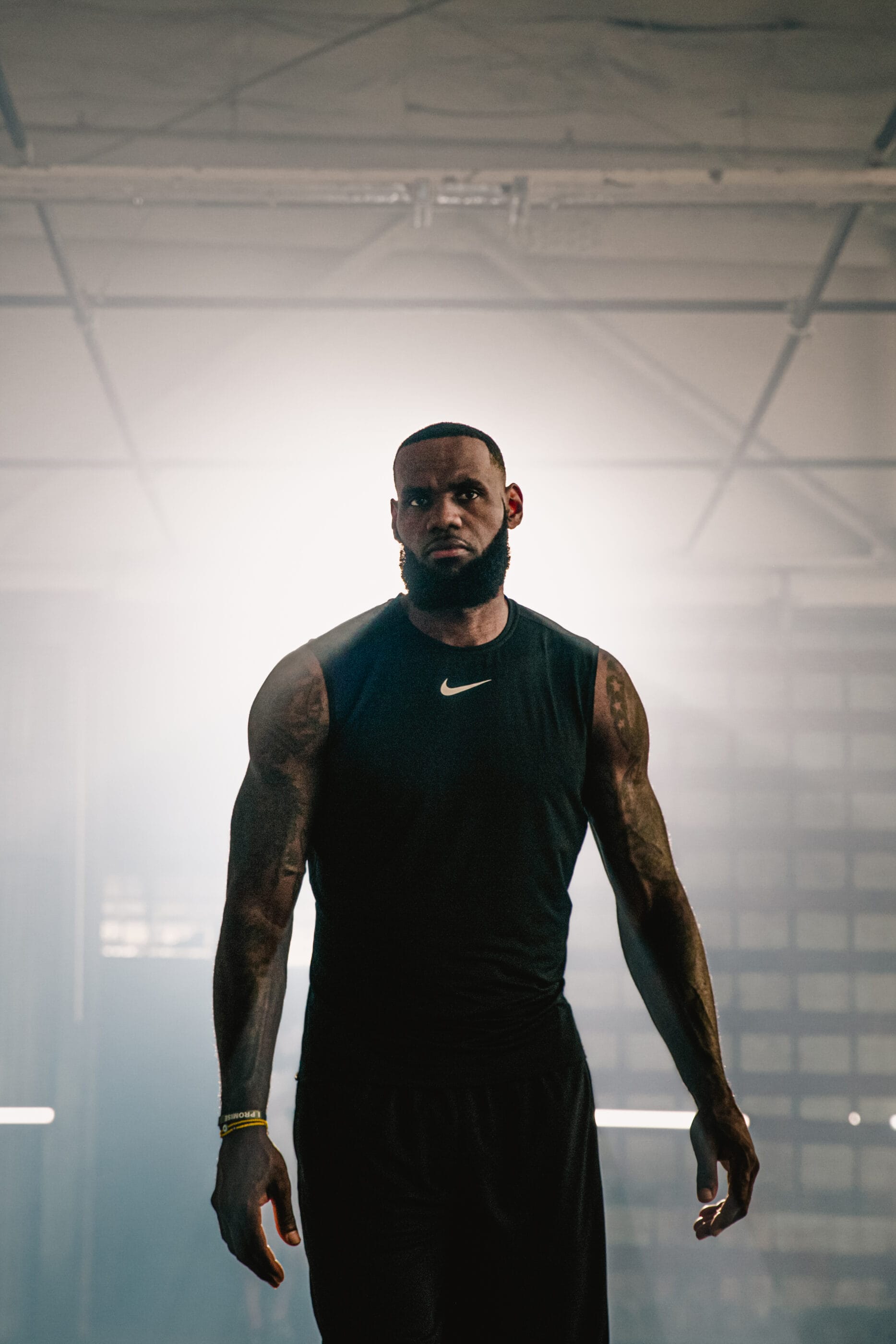
Does your process change if you’re photographing a higher profiled person?
Sort of. I mean, mainly from a scheduling perspective but not much outside of that. If we’re being real, sometimes higher profile individuals have busier schedules than others and you have to be mindful of that. At the same time, I do my best to make sure make sure that the high-profile person I’m photographing isn’t treated any different. I try to talk to them like anybody else, and I think people respect that.
Because I think people would feel weird having people walking on eggshells around them all the time. So, I like to be super casual. I don’t really change up who I am. That’s always been how I’ve worked and I think people can read that.
I’m never like super high strung, or forceful with what I’m trying to make. I’m usually like, “We’ll get what we get.”, and most of the time it’ll come out great because we prepared for it. I’m not about to sit here and stress myself out for it. So. I’ll tell you, when I shot Jack Harlow for Variety, I talked to him and said, “Don’t worry man, this ain’t your cover, this is our cover! I’m gonna make you look good, so don’t worry about it.” Ha ha! So, after we talked for a bit, he was super chill and we made it happen.
Ha! And you’ve found that the casual approach works on most occasions?
Well, it’s one thing to be really chill, but you also still need to be respectful. Like, when I did the LeBron shoot a couple years back in LA, he was such a super chill, funny dude. He was just running around having a blast on set
With the limited time I got to talk to him, he was so cool, but when his time was up and he had to go to his son’s basketball game, he let me know with no compromise. So, yeah this is a fun business, but we’re dealing with people and we all have our lives that need to be respected. If I’m honest, I think I’ve had a good grasp on that. I’ve never cared much about stardom.
Right. Because, at the end of the day, people are just people.
Yeah, exactly. That’s how I’ve always said it. The only difference is that they’re more busy and they got more money than you.
They’ve just got more money than you for now, right? Ha ha!
And they probably will for a little while longer. Ha ha!
Well, this has been great, Nolis. I appreciate it.
Dope. Thank you.
